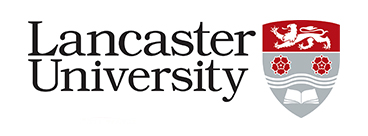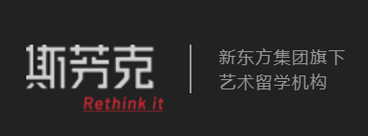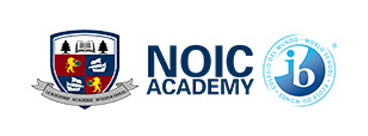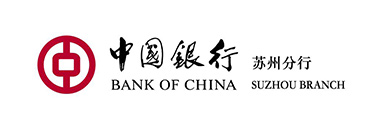2. Alexander's Essay
The mouthwatering scent of beef broth brought back a flood of childhood memories as it wafted around me. After a 12-hour drive from Florida to Texas, the familiar smell meant I was in ""bep cua bà"", or ""grandma's kitchen"" in Vietnamese. Every summer when my family visited my grandparents' house, my grandma always had a steaming pot of pho ready for us when we arrived, and this time was no exception. For my family, pho was more than a Vietnamese delicacy: it symbolized bringing us together over a warm, hearty meal. This specific visit, however, came with a change of perspective; as a young adult who was now conscious of his cultural roots, I wanted to learn more about my heritage by learning how to cook pho from my grandma.
As she boiled the water, my grandma stressed to me, ""Every bowl of pho needs a strong foundation: the broth."" Without a good broth, she explained, none of the other ingredients mattered. As I stood over the boiling pot, I thought about my own foundation: my family. My parents immigrated to America after the Vietnam War with nothing and had to work tirelessly to accomplish the celebrated ""American Dream"". From taking me to a 7 am student government fundraiser or a 10 pm baseball game in a city five hours away, I would not have been able to participate in these activities, which I consider an integral part of my identity, without their support. Being fortunate enough to have a strong foundation in my life has allowed me to be a strong foundation for others. For example, as an upperclassman on my varsity baseball team, I strive to be available for my teammates. Last season, when a younger teammate was struggling in a few games, I stayed back after practice to work with him on his fielding before driving him home, even though he lived almost an hour away. This small gesture was a reflection of my attempt to build a strong foundation for others.
As I watched the broth simmer in a giant pot that my grandma had continuously stirred for two days, she imparted another bit of wisdom onto me: making a great bowl of pho was also all about balance. Simply taking a great broth and indiscriminately adding to it would not suffice; each of the ingredients had to be in perfect balance with each other. Balance was never really something I considered until recently, when I experienced the struggle that can come from its absence. When I suffered a stress fracture in my lower back a few years ago that left me unable to play baseball for the foreseeable future, I felt as if suddenly a major part of my identity had been stripped away. I struggled with this new reality for a while until I realized I could fill this temporary void by acting as a mentor for my younger teammates. Additionally, with my newfound spare time, I was able to further develop my interest in Mu Alpha Theta, which gave me a new, enriching opportunity to compete in mathematics competitions. By the time I was finally cleared to play, I had developed a fresh appreciation for the importance of maintaining a balance among all the activities I did, as I had experienced firsthand the empty feeling of having this balance stripped away.
While putting the finishing scallions in the bowl, I reflected on the delectable meal I helped create and realized that what had started out as me simply wanting to learn more about my heritage became something more poignant: an introspection. Although there may not be a single perfect recipe for pho, by applying my grandma's cooking principles in my everyday life, whether it be in baseball, my volunteer lab experience, or my service trip to Guatemala, I hope to be able to make a ""bowl of pho"" that is perfect for me.
一碗越南牛肉粉,如何煮出文化归属与个人成长?——哈佛申请文书深度解读
📝 学生原文摘要:
在这篇温情而克制的文书中,Alexander 以祖母的“越南牛肉粉(pho)”为隐喻,串联起家庭根基、文化身份和个人成长。他在祖母厨房中学做pho,从“好汤底”领悟出家庭给予他的坚实支撑,又从“食材平衡”思考人生遭遇变故时的自我调适。文章最终落脚于他如何将这些“做饭哲学”应用在校园、志愿、科研等人生实践中,完成从“品尝”到“内化”的身份认同过程。
🎓 顾问点评:用一碗汤,讲清人生的滋味
1️⃣ 食物叙事:不只是“文化背景”,更是“情感根基”
Alexander 并没有简单陈述自己的越南血统,而是让“牛肉粉”成为具体可感的文化符号。祖母厨房的热汤、12小时车程的奔赴、锅边传授的“炖汤哲学”——这些细节勾勒出一个温暖的家族氛围,也自然带出他从“孙子”到“反思者”的视角转换。
这种从“生活中的一角”切入身份话题的方式,非常适合有多元文化背景的学生借鉴:不必上来就喊“我是某某国家移民的孩子”,而是让文化自然而然地渗透进情节中。
2️⃣ 善用类比:生活哲学的具体化表达
文中两大核心隐喻——“汤底”与“平衡”——不是堆砌修辞,而是经过深思熟虑的叙述主线:
-
“汤底”代表家庭给予的支持,他在棒球队中对学弟的照顾,正是对这一支持的传递。
-
“平衡”则是他从运动受伤中悟出的成长关键词,促使他转向数学兴趣并重新审视时间分配。
这类类比写法值得推荐给喜欢结构化思考的学生:选一个象征性强、可以反复回扣的意象,用来贯穿整篇叙事,可以让读者在情绪和逻辑上都获得更高的共鸣。
3️⃣ 真实不夸张:展示稳定而有温度的领导力
文中并没有强调他“带队赢球”或“获得比赛奖项”,而是把焦点放在一次“送学弟回家”的细节上。对招生官而言,这比一堆“履历罗列”更有温度。尤其是在美本申请强调“日常品格”的背景下,这类以“小事见情怀”的写法,常常能打动人心。
✅ 顾问总结建议
对申请者来说,想写出类似 Alexander 这样兼具文化深度与个人反思的文书,可以借鉴以下三点写作策略:
| 元素 | 建议写法 | 示例 |
|---|---|---|
| 象征物设定 | 选择一个具有文化+情感价值的物品或场景 | 祖母厨房里的 pho |
| 情节递进 | 用三个阶段展开(基础-转折-总结) | 汤底 → 失衡 → 内化反思 |
| 价值外化 | 将个人领悟延伸至团队、社区或未来行动 | 辅导队友、发展数学兴趣、公益实践等 |
✍️ 总结一句话:
这篇文书不是在“讲文化”,而是在“活文化”。
Alexander 用一锅汤,把家庭的温情、成长的坎坷、未来的选择,煮成了一碗只属于自己的 pho。
















